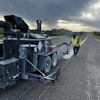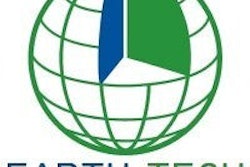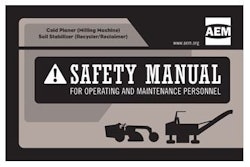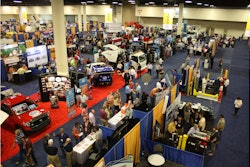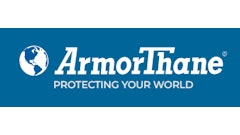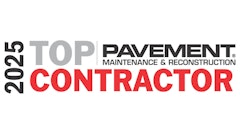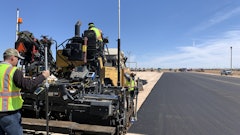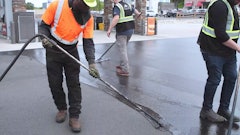In previous columns in this series, it was explained that the Minnesota Pollution Control Agency (MPCA) contracted with an environmental consulting company – EarthTech - to identify sources of Polycyclic Aromatic Hydrocarbons (PAHs) in sediments. MPCA did not believe that EarthTech’s report “makes a case for coal tar-based sealants as being the source of PAHs in stormwater sediments,” so MPCA buried the 2008 report, only making it available in response to a Freedom of Information Act (FOIA) request from PCTC. Hiding the report and ignoring the evidence that RTS is not an identifiable source of PAHs in storm water pond sediments freed MPCA staff to continue to promote a ban of RTS. Early in 2009, at the request of MPCA, the Minnesota legislature passed an appropriations bill that made cities and towns eligible for certain state funds, beginning in 2010, only if RTS use was banned in the municipality. As yet, neither MPCA nor any Minnesota elected official had consulted with the effected industry.
PCTC first heard of Minnesota’s “ban RTS to get money from the State” scheme in February, 2010, when the City of White Bear Lake proposed to ban RTS. Shortly after PCTC learned about the funds-for-bans scheme, MPCA posted a draft report on the sources of PAHs on its web site. Written by MPCA’s Judy Crane, the report used the US Geological Survey (USGS) Austin, TX study discredited in the suppressed consultant’s report to point to RTS as the most important source of PAHs in storm water pond sediments.
The State of Minnesota did not issue any public notice of its actions against the sealcoating industry either before or after the funds-for-bans scheme or MPCA’s report with its recommended bans. No government official - elected or career, city or state – contacted any industry representative. The manager of one of the sealcoat manufacturers in Minnesota contacted White Bear Lake city officials as well as PCTC. In turn, PCTC contacted the City as well as MPCA. MPCA staff indicated that Dr. Crane’s report was just a draft. With the understanding that it was a draft subject to further review, PCTC asked that the report be withdrawn pending that review. The “draft” remains available on MPCA’s web site today.
As it turns out, MPCA was looking for a scalp without regard to whether an RTS ban would solve any actual problems. In an email to the authors of the USGS’ Austin study dated February 24, 2010, Dr. Crane writes:
I want you to know that it is not my intention to debate scientific studies, research, or sampling results with the PCTC. My discussions with the City of White Bear Lake and the League of Minnesota Cities thus far have focused our attention away from the scientific burden of proof, and more on public policy and the political will needed to move forward with coal tar restrictions… The public policy points support a state-wide restriction for precautionary reasons and do not rely exclusively on the results of recent studies.
That is, Dr. Crane recommended that MPCA support a ban on RTS in Minnesota not because a problem had been identified and a solution found, but on a personal policy preference not supported by the facts – indeed, facts relevant to making sound policy were suppressed. Like politicians everywhere, Minnesota officials were only too eager to be seen as problem solvers, and were not too particular about whether the problem was real or the solution effective.
And Dr. Crane? Since 2010, she has vigorously defended flawed USGS science at every juncture. She has to. Based on her failure to communicate facts that were known to her in 2008, at least one sealcoat manufacturer of both tar- and asphalt-based product has left Minnesota. Minnesota tax payers have wasted many dollars on MPCA projects attempting to prove what many at MPCA know to be false, and more money to convince the public and government agencies in other states of the righteousness of MPCA’s actions.
The final bit of irony is that the statewide ban in Minnesota was slipped into a final omnibus funding bill at the request of MPCA without hearings, without notice and comment, without votes by more than a few legislators who likely did not know what they were voting on.
Government by self-declared experts. Is this how Minnesotans want their laws to be made?


